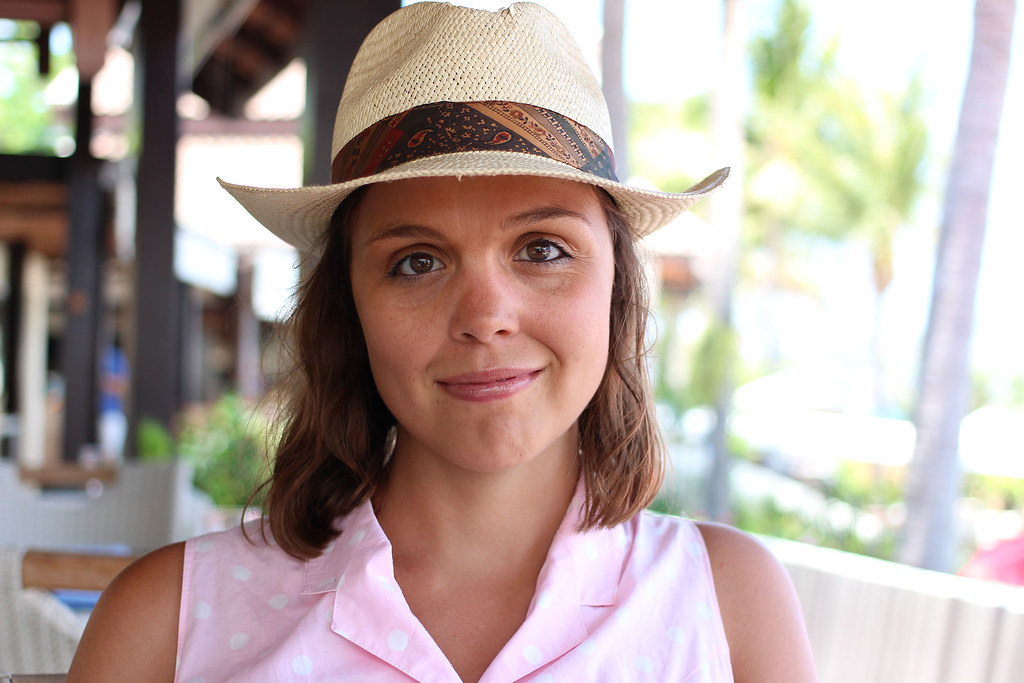Ten Things All New Successful Self-Publishers Must Do
 Leading on from this post I wrote as a very basic overview to self-publishing (based on my own experience) the following is a list of things that you are going to have to squeeze into your busy schedule if you want a shot at being a successful self-published author.
Leading on from this post I wrote as a very basic overview to self-publishing (based on my own experience) the following is a list of things that you are going to have to squeeze into your busy schedule if you want a shot at being a successful self-published author.
Again these tips are for those who are at the very beginning of their self-publishing journey and they are also for authors of both fiction and non-fiction.
1. WRITE (REALLY, REALLY, REALLY WELL)
Whether you're working on a non-fiction "How to not kill house-plants even if you tried very hard" guide (somebody please write this!), writing your travel sex memoir "Around the World in 80 Flags" or penning that post-apocalyptic-werewolf-goblin-fantasy novel that just won't quit you, if the book isn't written, it won't sell. So yep, predictably writing is your first step on any kind of publishing journey.
However, if the book isn't written well , it possibly won't sell as well as you'd like (Fifty Shades and impersonators aside, I think we all know why those kind of books sell, you filthy lot) and if it's written really, really, really well, it has the best possible chance of going somewhere.
To summarise, your future lies in the hands of your readers - they need to enjoy your product if they're going to read it, review it, share it and most importantly, come back for more.
2. RESEARCH
I naively thought I would learn all there is to know about self-publishing by dipping in and out of a few blogs and reading one guide by a successful self-published author. I was utterly wrong. Eighteen months, three private Pinterest boards and an overflowing stack of Evernote Notebooks later, I know that I will NEVER know all there is to know about self-publishing, but do I know how to get my book on to the best platforms, how to write a decent blurb, how to pick the right genre for my book, how to get it ready for ebook conversion and how to manage countless marketing initiatives without pulling all my hair out.
And if I don't know something I know exactly where to look for it. This list is a great start and my personal top recommendations are The Creative Penn for very specific answers to certain questions (and the free Author Blueprint 2.0 is a great intro to self-publishing), David Gaughran's books Let's Get Digital and Let's Get Visible - to be read in that order - to understand how to sell online (including detailed information on Amazon) and to keep somewhat up to date with changes in the industry check out the Self-Publishing Podcast (thanks Mike for getting me into that) though watch out for expletives and a lot of "man-humour".
While your priority is always writing, committing time to researching self-publishing and the ever-changing publishing industry will help answer some of the hundreds of questions you have as you get closer to publishing.  3. KNOW YOUR GENRE
3. KNOW YOUR GENRE
Read any of the above resources and you'll find yourself tripping over the word "genre" and though it seems easy to understand on the surface, getting this wrong - or not quite right - could be the main obstacle to success in the short term. Despair not, however, because the beauty of self-publishing is that you can change what genre you list your book as relatively quickly if they're not working for you.
When it comes to genre, the narrower the better. If you have a very specific genre (fiction or non-fiction) then I am very very jealous. Unfortunately there's no category for "Quirky and contemporary fictional short stories about people who go on holidays" so I'm getting lumped in the rather large "Short Stories" genre competing with some of the most successful authors of my time. It means that the best-selling ranks on Amazon etc. that so many people have used to increase sales (David Gaughran explains this well in his books) is possibly beyond me. Time to work on that paranormal-hologram-erotica...
4. LEARN TO EDIT
If I'm honest, learning how to edit effectively and with joy - yes, really! - was the lightbulb, Eureka AND learning to fly moment for me as I worked on Shy Feet. Unless you're a certain type of writer, your first draft will resemble a pile of off-colour projectile vomit. You'll vaguely recognise some interesting, some almost charming chunks, but really, it's nothing like what you want your book to look (or smell) like. Thus begins the bittersweet part; editing. I have done a 360 degree turn on editing and after studying the craft and completely adapting how I approach it, I now swear by it not only for my fiction work but also for a lot of the copywriting work I do. You can and must edit magic into your work.
There are lots of books on Amazon about editing and the one I recommend most is The Artful Edit by Susan Bell. I'm also now reading Editor of Genius, a fascinating book about one of America's most famous editors, Maxwell Perkins.
5. OUTSOURCE
One of the best pieces of advice I've ever been given is that you can't do everything.
An even better piece of advice is "you can't excel at everything".
When you consider how multi-faceted self-publishing is - you have to be writer, editor, cover designer, formatter, proofreader, beta reader, PR and marketing manager, chief sales executive and customer liaison leader - you can't possibly expect to excel at all these things. And to be brutally honest, while you can probably "do" all these things, you'll be letting yourself down if you go ahead and try to manage them all by yourself.
For me, I knew that I couldn't proofread, copyedit, format the ebook and design my front covers to the standard I wanted. (I also think nobody should proofread or even copyedit their own book.) I wanted my books to be polished and so I outsourced these. Yes, it cost me a lot of money. Yes, it may take me months to recoup those costs but do I have a product that is something I can proudly sell and trust that readers will enjoy. I surely, surely do. (For the record, having a team of beta readers willing to preview the book was incredibly beneficial too - start finding these people as soon as possible.) 6. MARKETING
6. MARKETING
My least favourite and most yukky part of the whole self-publishing process, marketing is now an activity that ALL writers - self-published or otherwise - have to contend with. Nobody knows your book better than you and that automatically makes you the perfect person to sell it.
How you actually go about that is something I'm still learning, but even at the early stages of writing your to-be-self-published book, I would highly recommend noting ideas, doing marketing research and really thinking about your target market and how you can reach them. The aforementioned Joanna Penn's How To Market A Book is also worth a read, if just to introduce you to the ways self-published authors are approaching marketing these days. My top tip at this early stage is to steer clear of (most) websites that offer paid advertising and promotion for listing your book, instead find proactive sites that offer free promotion and author interviews, like Indie Author Land.
If there's one positive thing I've learned about marketing a book, there's no limit to how many ways you can do this and for the most part you can afford to try as many of them as you have time and resources for. Be creative! (I also wrote a post on Medium about the stress and confusion of marketing a book.)
7. GET TO KNOW THE SALES PLATFORMS
Think self-publishing, think ebooks? Not quite. I was astounded when I launched Shy Feet to receive many emails asking me when the paperback version was going to be out. So much so I fast forwarded the release date by two weeks. (I published with Createspace and the books are being distributed through the Amazon network.)
That said, there is a huge ebook market out there that is growing and growing across a number of different formats; Amazon, Kobo, Smashwords, Nook, Books on iTunes, Google Play Books. After doing my research and "testing the waters" with See the Amalfi Coast I knew my best platforms to sell on would be Amazon, Kobo and Smashwords. I also decided to sell on my own blog… Why? See below. 8. BUILD (OR BLOG) A PLATFORM THAT YOU VALUE AND RESPECT
8. BUILD (OR BLOG) A PLATFORM THAT YOU VALUE AND RESPECT
If I haven't already told you, I love blogging. I ADORE IT. It's probably something to do with getting to play the writer-editor-publisher role, having complete creative control over something. Also it's the words. I love the words. Anyway, I've been blogging for over four years now and over that time I've gained and kept hold of, using both hands and my teeth on occasion, a number of highly-valued, loyal readers. Over the last two years I've grown my newsletter readership by offering free and exclusive content and I've increased my following on social media by sharing information of value that I think my readers will enjoy. While I don't expect each of my readers to buy or even want to read my book, I want them to know I VALUE THEM (YOU!). So when it came to pricing my book and making it available I decided to put it up on my blog that readers could buy at a reduced price* in a couple of clicks through PayPal. I'll also admit it was a bit of experiment to see if it would take off. So far so good... but perhaps ask me in a year how successful it has been.
9. KNOW THAT THINGS WILL CHANGE
Self-publishing is one of the fastest moving markets in the current digital climate. Amazon is constantly reviewing and changing its algorithms, Google Books is apparently planning on doing something special and the Kindle's market share on ebook readers is decreasing (albeit it slooooowwwly). There are also changes in traditional publishing in response to self-publishing and now "hybrid" authors are emerging whereby they continue to handle their ebook rights or non-international sales but they work with agents and/or publishers with regard to foreign rights or selling in print etc. It's important, if you're going to take self-publishing seriously as a potential money-spinner, that you keep on top of the changes that are happening and that you're mentally and emotionally prepared for change. 10. BE PATIENT (AND KEEP WRITING)
10. BE PATIENT (AND KEEP WRITING)
Self-publishing is not a quick way to make money. In fact, it is certainly the slowest, most drawn out and most uncertain way to make money I've ever tried. Not only did I dig deep into the pockets of my vintage dresses to pay other people for the work I outsourced before my book had even seen the light of day, but I took time away from paid work to get the stories finished. Of course, there's also the total amount of time it took to write this; hundreds of hours that I could have been earning money by selling hugs or writing about toilet brushes for the clients that could have been, but instead I was working on something that will probably not "break even" by the end of this year... unless I'm very lucky or I finally figure out this marketing thing!
I am gradually learning that patience is not only a virtue but a science, an art form and an often invisible, intangible mythical creature with horns and wings. Thankfully, writing the next book keeps me company as I battle through the self-doubt and lack of income.
So why do it, Frankie? I hear you ask.
Because I...
11. UNDERSTAND THAT SELF-PUBLISHING IS A MARATHON NOT A SPRINT... BUT IT'S A HUNDRED TIMES EASIER WHEN YOU'RE IN LOVE. I knew very quickly from the research I was doing that there were two things I had to do if I was to have any sort of a chance at succeeding as a self-publisher.
a) NEVER give up.
b) Fall in love with my books.
Writers are naturally self-deprecating gluttons for elaborate DIY attacks on self-esteem and self-worth. No matter how many 5-star reviews, accolades and awards are thrown at them, they will spend more time thinking "Man, I'm shit at this," than "Look, how shiny my awards are,". Though very new to this game and completely sans awards, I'm no different. Publishing See the Amalfi Coast was the single scariest thing I've ever done. (It even beat this.) I feared the story was too linear, too unadventurous, too emotionally-charged. (I still do.) But, I also loved it. I loved Martin and how loudly he spoke to me the whole way through writing the story, all his effing and jeffing in my head. I loved his gentle, loyal wife for dutifully letting me give Martin all the dialogue, though I paid tribute to her by sharing only her thoughts. I loved juxtaposing their awful and complicated predicament against the dramatic but beautiful backdrop of the Amalfi Coast.  As narcissistic as it may sound, I was in love with that story and I'm a little bit in love with all the others in Shy Feet. (FYI, All the Beaches Made of Pebbles made me cry (good tears!) twice as I wrote it.) I will always be the first to argue that none of them are perfect, that some are weaker than others, certainly, and I still fear that moment when someone will pick up the book and hate every word I've written. And yes it will happen. But I don't think that will dilute my love for Shy Feet, or the love I have for the stories I'm writing now.
As narcissistic as it may sound, I was in love with that story and I'm a little bit in love with all the others in Shy Feet. (FYI, All the Beaches Made of Pebbles made me cry (good tears!) twice as I wrote it.) I will always be the first to argue that none of them are perfect, that some are weaker than others, certainly, and I still fear that moment when someone will pick up the book and hate every word I've written. And yes it will happen. But I don't think that will dilute my love for Shy Feet, or the love I have for the stories I'm writing now.
So go on, ignore the good reviews you get and beat yourself up about how bad your book is, but let yourself fall in love with it too, because only then will you feel in the best place possible to not only finish it, press publish and then try and sell it, but this will also feed the patience and stamina you need to keep running the marathon.
If you have any other questions about self publishing please leave them in the comments or email me as I'm keen to address the things you really want to know. If you're ready to start writing and you'd like to do NaNoWriMo - which is where it all started for me - here's a guide to preparing for the writing challenge.
If you'd like to pin this post, here's an image you can use!
 Photos - all used under Creative Comms - One, Two, Three, Four, Five, Six
Photos - all used under Creative Comms - One, Two, Three, Four, Five, Six

Frances M. Thompson
Find Frankie on Facebook, Twitter, Instagram, Pinterest, and Google+.
_x300.jpg?v=1) On Writing: The Year I Decided to Write for My Life
On Writing: The Year I Decided to Write for My Life On Writing: What Are The Different Types of Editors?
On Writing: What Are The Different Types of Editors? Preptober Tips & 100 Preptober Prompts for NaNoWriMo Prep
Preptober Tips & 100 Preptober Prompts for NaNoWriMo Prep On Writing: How to Write Every Day
On Writing: How to Write Every Day On Writing: Should You Write Fiction or Non-Fiction?
On Writing: Should You Write Fiction or Non-Fiction? About the Blog & Frankie
About the Blog & Frankie Welcome to My Amsterdam Travel Blog!
Welcome to My Amsterdam Travel Blog! Welcome to My Luxury Family Travel Blog!
Welcome to My Luxury Family Travel Blog! Welcome to My Writing Blog!
Welcome to My Writing Blog! Lover Mother Other: Poems - Out Now!
Lover Mother Other: Poems - Out Now! I Write Stories That Move You
I Write Stories That Move You Order WriteNOW Cards - Affirmation Cards for Writers
Order WriteNOW Cards - Affirmation Cards for Writers Work With Me
Work With Me